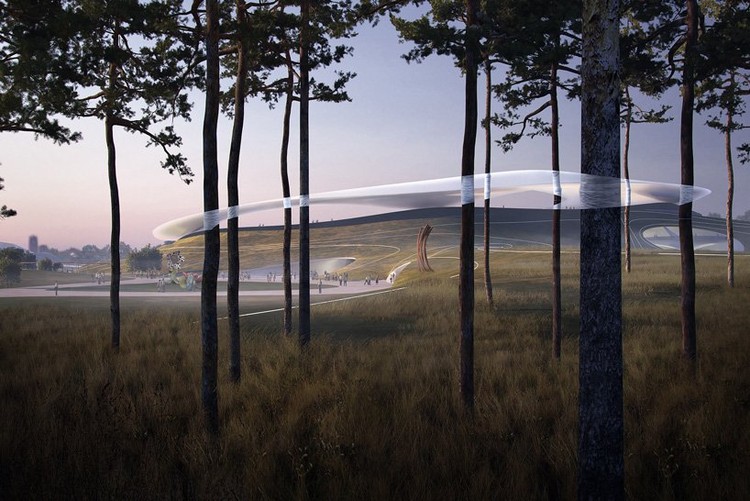
MAD Architects have officially begun construction on the Quzhou Sports Campus in China. Led by the Ma Yansong, the team designed the campus as a futuristic landscape with mountains and a lake conceived as a sunken garden. The design connects to the historic city as a surreal, ethereal and tranquil landscape. The 700,000 sqm sports campus combines the functions of a sports park with natural and organic forms to embrace thousands of years of history and culture in Zhejiang.

The first and second phase of MAD‘s sports campus have a total construction area of approximately 340,000 sqm, and include a 30,000 seat stadium, outdoor sports venue, gymnasium, national sports complex, science & technology museum, hotel accommodations, youth center and retail programs. Visitors are encouraged to move through the park by climbing and traversing the terrain. The rolling hills on the northeast side form the gymnasium and training center, above which are public spaces and natural scenery. At the heart of the project is the crater-shaped stadium. It is crowned by a translucent ‘halo’ that hovers above the ground below, standing as a metaphor inviting people to engage in a dialogue between earth and sky.


Quzhou Sports Campus abandons the traditional mode of modern urban construction, instead focusing on the natural landscape as a starting point for the design of urban space. Everywhere inside and outside, the building allows visitors to immerse in nature. The landscape interlinks pathways for walking, while skylights allow light into the mountains and program below. The design aims to advocate green energy and to prioritize human scale.
.jpg?1538405497)
As MAD states, they believe the sports campus should embody the future of urban development and the opening of a new period, one that brings the harmonious relationship between man and nature into focus. Ma Yansong said, "‘We dream not only of creating an urban space about sports and ecology, but also turning it into a unique land art park for the world, establishing a relationship between the city’s heritage and history of Shanshui Culture." The campus offers a unique take on urban projects, advocating a future that allows nature to take center stage.











.jpg?1538405497)





